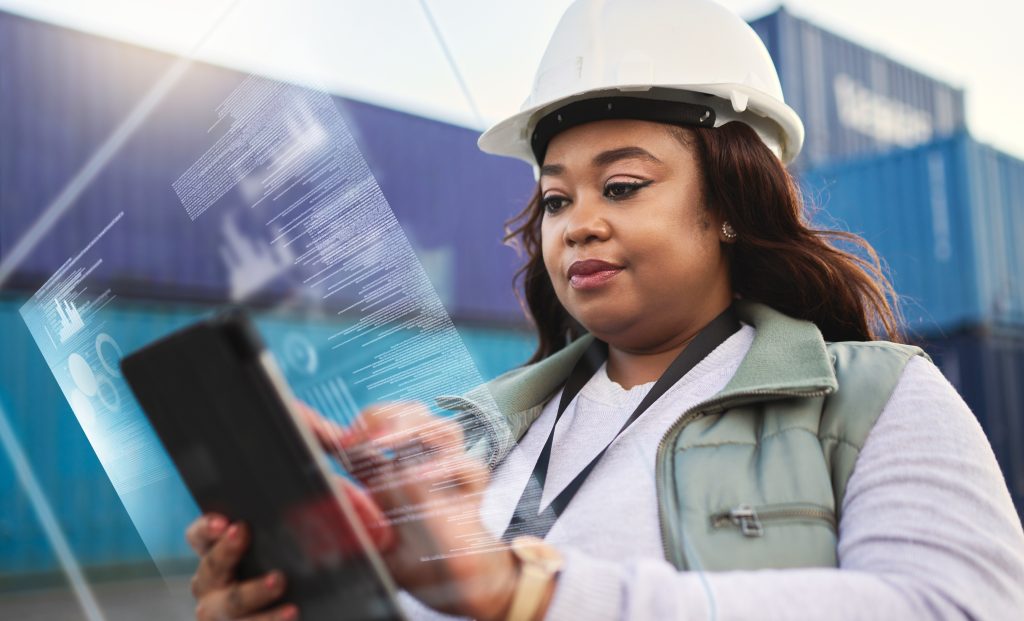 The construction industry may not be known for breaking new ground (at least when it comes to technology), but it is no stranger to innovation. New tools and techniques are continually emerging or refined to suit modern timelines and tastes. But, as the recent surge in artificial intelligence adoption pushes the boundaries of what is possible, many best-in-class general contractors and subcontractors are taking a bold step into the future.
The construction industry may not be known for breaking new ground (at least when it comes to technology), but it is no stranger to innovation. New tools and techniques are continually emerging or refined to suit modern timelines and tastes. But, as the recent surge in artificial intelligence adoption pushes the boundaries of what is possible, many best-in-class general contractors and subcontractors are taking a bold step into the future.
AI systems have evolved rapidly since they emerged as a novel curiosity generating otherworldly images. Now, construction leaders are relying on AI to enhance their operations, from planning and design to financial analysis and improved decision-making. In this article, we’ll explore how today’s firms can harness AI to drive efficiency that can ultimately lead to better financial health and higher profitability.
Enhanced Project Planning and Design
One of the primary uses of AI in construction is in project planning and design. AI-powered tools, such as Building Information Modeling (BIM), have revolutionized how projects are conceptualized and planned. These tools create highly detailed 3D models that feature every aspect of a building’s structure and systems. They can reveal potential design flaws, carry out clash detection, help professionals optimize materials and layouts, and keep costs in check. All of which can not only reduce the likelihood of expensive errors but also shorten the planning phase, so projects get off the ground more quickly.
Predictive Maintenance and Equipment Management
AI is also making significant inroads in equipment management. Construction companies are utilizing AI-driven predictive maintenance to monitor the performance of machinery in real-time. Sensors and IoT devices collect data on equipment usage and condition, which AI algorithms analyze to anticipate maintenance needs. This can help minimize downtime, extend the lifespan of machinery and reduce maintenance-related expenses.
Optimized Project Scheduling
AI’s ability to analyze data across multiple sources can make scheduling easier. Advanced scheduling software uses AI to account for weather patterns, labor availability and supply chain logistics to create reliable, accurate and adaptable project timelines.
Safety Management
AI can play a crucial role in enhancing workplace safety. AI-powered cameras can monitor job sites in real-time, identify potential hazards and help ensure compliance with safety protocols. These systems detect potentially unsafe behaviors, such as workers not wearing protective gear, and alert supervisors immediately. By analyzing historical accident data, AI can even identify risk patterns and suggest preventive measures.
Material and Supply Chain Optimization
AI algorithms can forecast material requirements based on project specifications and timelines, helping to ensure materials are available when needed. AI can also streamline supply chain operations by predicting lead times and identifying reliable suppliers, saving contractors both time and money.
Quality Control and Assurance
Ensuring high-quality results is always a priority. AI-powered quality control systems use machine learning to analyze images and data from the job site to detect defects and deviations from project specifications. That can improve the overall quality of the construction while safeguarding against the need for costly rework and delays.
Backoffice Automation and Analytics
Properly configured IT environments allow AI to integrate seamlessly to conduct financial analysis, automate repetitive administrative tasks and generate insightful reports. The successful implementation of AI depends on four factors: (i) thoughtful governance to verify outputs and ensure the ethical use of AI technology, (ii) curated data to ensure the AI is drawing on reliable information, (iii) a closed environment that protects sensitive information, and (iv) an intuitive, secure and capable platform. When it comes to AI use cases, the sky is the limit. However, ensuring these four pillars are central to a business’s AI strategy will determine whether its first foray into AI generates meaningful ROI or is an expensive but unproductive experiment.
Conclusion
Integrating AI in construction is no longer a futurist’s dream; it’s a present-day reality transforming the industry. Many best-in-class general contractors and subcontractors already leverage AI to enhance their operations — quality control and automation to financial analysis and cost reduction. Embracing AI is helping these industry leaders set new standards for efficiency, accuracy and safety. As AI technology continues to evolve, its impact on the construction industry will only grow, ushering in a new era of innovation and excellence.
 Joseph Natarelli is the national construction leader at CBIZ. He has more than 35 years of experience, including advising on mergers, acquisitions and divestitures. He has served as a technical reviewer for the American Institute of Certified Public Accountants’ (AICPA) construction audit and taxation guides for more than two decades and chaired the AICPA National Construction Program Conference Committee 2012–2014.
Joseph Natarelli is the national construction leader at CBIZ. He has more than 35 years of experience, including advising on mergers, acquisitions and divestitures. He has served as a technical reviewer for the American Institute of Certified Public Accountants’ (AICPA) construction audit and taxation guides for more than two decades and chaired the AICPA National Construction Program Conference Committee 2012–2014.











